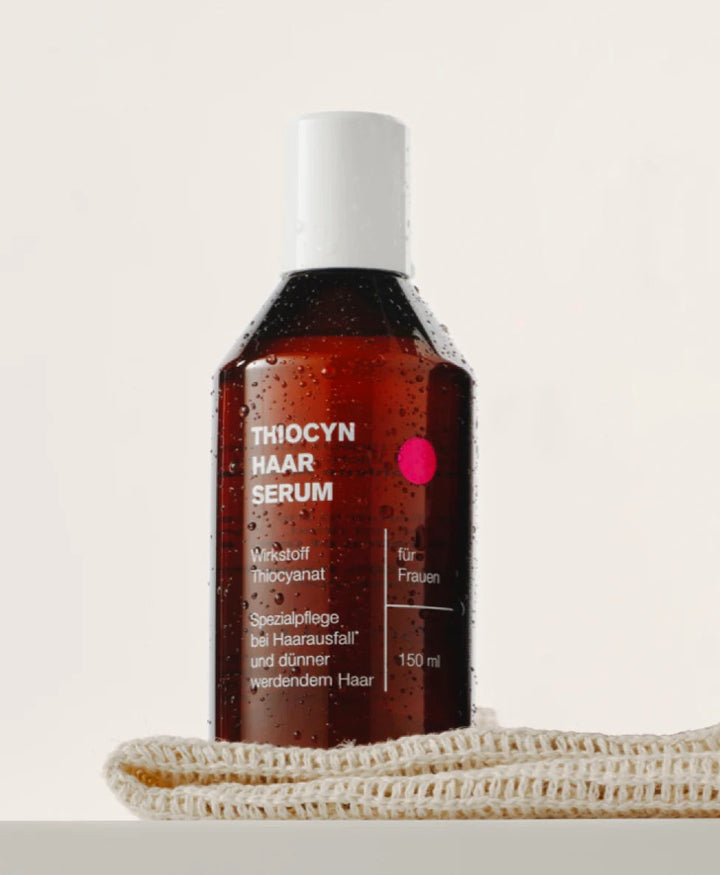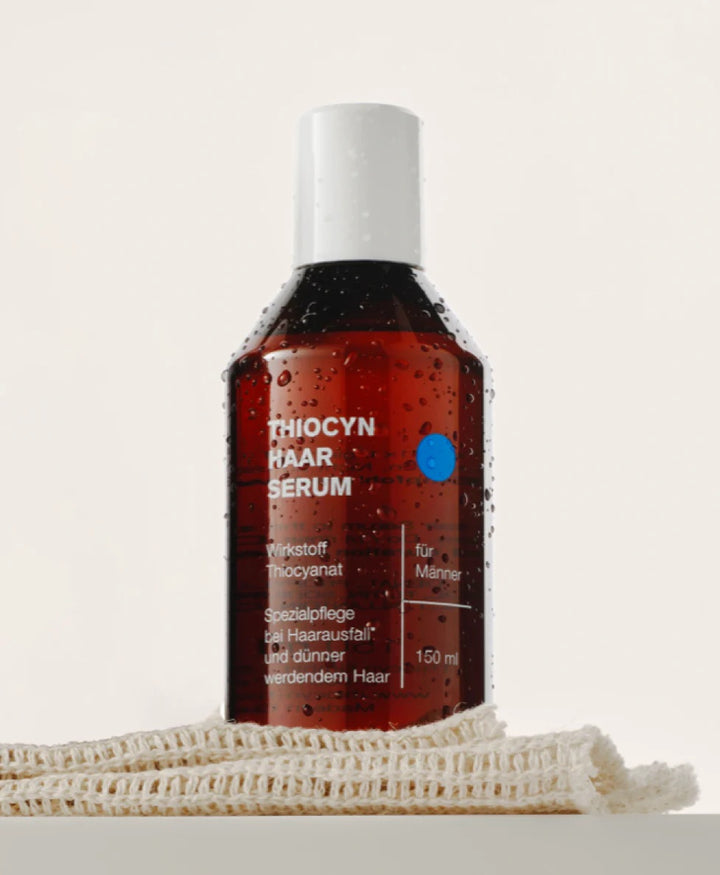| 04. July 2023
Hair loss due to medication

- Various medications can cause hair loss as a side effect – the package insert provides information.
- To protect the hair, other medication is often possible.
- The patented Thiocynate active formula helps the hair follicles compensate for factors that disrupt hair growth*.
It has been known for some time that the use of certain medications can also trigger hair loss. These pharmacological substances enter the scalp via the bloodstream, where they disrupt cell metabolism at the hair roots and hair growth. The resulting hair loss is diffuse and affects both women and men.
Often underestimated: Hair loss caused by medication
Dermatologists recommend antihypertensive drugs, drugs to reduce blood fat, some anticoagulants (except aspirin), antibiotics, and antidepressants, as well as painkillers and antirheumatic drugs. For women, this may sometimes be the contraceptive pill containing progestins.
In most cases, increased diffuse hair loss becomes noticeable three months after the triggering event due to a premature interruption of the growth phase of many hairs. With the therapeutic use of cytostatic drugs during chemotherapy, dystrophic hair loss occurs after two weeks at the latest due to abnormal hair growth. In both cases, the scalp fortunately not damaged.
Hair loss after surgery
Doctors have not yet been able to fully explain how surgery or general anesthesia causes hair loss. However, it is suspected that anesthetics impair cell metabolism at the hair roots and disrupt hair growth.
If cell division and growth are disrupted for a certain period of time, the hair cannot continue to grow and falls out. In addition, surgical patients often have to take additional medications such as painkillers, which place a strain on the body and the sensitive hair follicles for days or even weeks until the body breaks them down.
Avoid hair loss
Anyone who has ever heard of excessive diffuse hair loss Anyone who has been affected should inform their doctor. This is important before an upcoming surgery or when starting new medication. If the doctor is unwilling to discontinue or replace critical medications, the question arises as to how to compensate for their negative effects on hair growth. The aim is to find an active ingredient that strengthens the hair roots but does not cause side effects or interactions.
Good remedy
Thiocyn Hair Serum fulfills the desire for a hair loss remedy* that has no known side effects or interactions. Its patented active formula is based on the body's own natural molecule thiocyanate. Thiocyanate stabilizes cell metabolism and normalizes the hair cycle.
Questions for our service team
Why exactly does hair fall out during chemotherapy?
The drugs (cytotoxic drugs) that fight cancer cells also disrupt the cellular metabolism of the hair follicles. If cell division and cell growth of the hair follicles are impaired, the hair continues to grow but breaks off at the affected area two to four weeks later.
Can the effects of chemotherapy on hair be reduced?
One way to protect hair during treatment with cytostatic drugs is to wear special caps. A coolant circulates inside the caps, cooling the scalp to 15 degrees Celsius. The cold causes blood vessels to constrict, allowing very little "chemical" to reach the hair. In addition, cell metabolism at the hair roots is slowed, making them less susceptible to damage.
How can it be that the contraceptive pill has the side effect of hair growth on the one hand, but also the opposite
It depends on the ingredients in the pill. Estrogens cause hair to stay in the growth phase longer. Progestogens have a mild androgenic effect and, in those with a corresponding hereditary predisposition, cause mild androgenetic alopecia.
READ BY 23,000 PEOPLE
Join 23,000 others and find out how to improve your hair health with great offers and discounts as well as helpful advice











